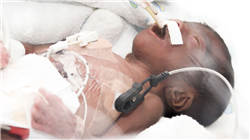University certificate
The world's largest faculty of medicine”
Introduction to the Program
With this 100% online Postgraduate certificate, you will acquire specialized and up-to-date knowledge in critical areas of pediatric care, improving your ability to perform timely and effective interventions"

In the PICU, Digestive, Renal and Neurosurgical Emergencies represent a significant challenge, due to their high complexity and the need for rapid and specialized interventions. Therefore, the implementation of evidence-based protocols and continuous staff specialization are essential to optimize the care of these critical patients.
In this sense, this Postgraduate certificate, which will include a reflective assessment of blood product transfusions in the critically ill child. Therefore, physicians will evaluate when it is necessary to administer these products, considering both the potential benefits and risks. In addition, indications, contraindications and complications associated with transfusions will be discussed, as well as strategies to minimize risks and optimize clinical outcomes.
In addition, we will discuss Hemolytic-uremic syndrome (HUS), one of the main causes of acute renal failure in children, providing a detailed review of its pathophysiology, clinical presentation and management. HUS will also be differentiated from other conditions that may present with similar symptoms, using a systematic and evidence-based approach to differential diagnosis, crucial for implementing early and appropriate treatment.
Finally, updating knowledge on neuromonitoring of the critically ill child will be addressed, becoming familiar with the different techniques and technologies available, as well as their interpretation and clinical application. Likewise, the complexities of the postoperative management of Difficult Airway will be examined, highlighting strategies to anticipate and resolve complications, ensuring adequate ventilation.
In this scenario, TECH has developed a complete online program, customized to meet the individual needs of the student, eliminating obstacles such as the obligation to attend a physical location or to comply with pre-established schedules. Additionally, it is supported by the revolutionary Relearning methodology, which involves the repetition of essential concepts to guarantee an optimal and fluid understanding of the contents.
You will develop competencies in the thoughtful and ethical assessment of critical interventions, such as blood product transfusions, and in the application of advanced technologies for neuromonitoring"
This Postgraduate certificate in Digestive, Renal and Neurosurgical Emergencies in the PICU contains the most complete and up-to-date scientific program on the market. The most important features include:
- The development of practical cases presented by experts in Digestive, Renal and Neurosurgical Emergencies in the PICU
- The graphic, schematic and eminently practical contents with which it is conceived gather scientific and practical information on those disciplines that are indispensable for professional practice
- Practical exercises where self-assessment can be used to improve learning.
- Its special emphasis on innovative methodologies
- Theoretical lessons, questions to the expert, debate forums on controversial topics, and individual reflection assignments
- Content that is accessible from any fixed or portable device with an Internet connection
You will address the clinical features, etiologies and treatment options for HUS, a serious condition that primarily affects young children and can lead to Acute Renal Failure. Enroll now!"
The program’s teaching staff includes professionals from the field who contribute their work experience to this educational program, as well as renowned specialists from leading societies and prestigious universities.
The multimedia content, developed with the latest educational technology, will provide the professional with situated and contextual learning, i.e., a simulated environment that will provide immersive education programmed to learn in real situations.
This program is designed around Problem-Based Learning, whereby the professional must try to solve the different professional practice situations that arise during the course. For this purpose, students will be assisted by an innovative interactive video system created by renowned and experienced experts.
You will evaluate the indications, risks and benefits of blood transfusions and its components, applying clinical and ethical criteria in decision-making to improve outcomes in patients with severe anemia"

You will delve into the complications and strategies in the postoperative management of Difficult Airway, through the best didactic materials on the market, at the forefront of technology and education"
Why study at TECH?
TECH is the world’s largest online university. With an impressive catalog of more than 14,000 university programs available in 11 languages, it is positioned as a leader in employability, with a 99% job placement rate. In addition, it relies on an enormous faculty of more than 6,000 professors of the highest international renown.

Study at the world's largest online university and guarantee your professional success. The future starts at TECH”
The world’s best online university according to FORBES
The prestigious Forbes magazine, specialized in business and finance, has highlighted TECH as “the world's best online university” This is what they have recently stated in an article in their digital edition in which they echo the success story of this institution, “thanks to the academic offer it provides, the selection of its teaching staff, and an innovative learning method aimed at educating the professionals of the future”
A revolutionary study method, a cutting-edge faculty and a practical focus: the key to TECH's success.
The most complete study plans on the university scene
TECH offers the most complete study plans on the university scene, with syllabuses that cover fundamental concepts and, at the same time, the main scientific advances in their specific scientific areas. In addition, these programs are continuously being updated to guarantee students the academic vanguard and the most in-demand professional skills. In this way, the university's qualifications provide its graduates with a significant advantage to propel their careers to success.
TECH offers the most comprehensive and intensive study plans on the current university scene.
A world-class teaching staff
TECH's teaching staff is made up of more than 6,000 professors with the highest international recognition. Professors, researchers and top executives of multinational companies, including Isaiah Covington, performance coach of the Boston Celtics; Magda Romanska, principal investigator at Harvard MetaLAB; Ignacio Wistumba, chairman of the department of translational molecular pathology at MD Anderson Cancer Center; and D.W. Pine, creative director of TIME magazine, among others.
Internationally renowned experts, specialized in different branches of Health, Technology, Communication and Business, form part of the TECH faculty.
A unique learning method
TECH is the first university to use Relearning in all its programs. It is the best online learning methodology, accredited with international teaching quality certifications, provided by prestigious educational agencies. In addition, this disruptive educational model is complemented with the “Case Method”, thereby setting up a unique online teaching strategy. Innovative teaching resources are also implemented, including detailed videos, infographics and interactive summaries.
TECH combines Relearning and the Case Method in all its university programs to guarantee excellent theoretical and practical learning, studying whenever and wherever you want.
The world's largest online university
TECH is the world’s largest online university. We are the largest educational institution, with the best and widest online educational catalog, one hundred percent online and covering the vast majority of areas of knowledge. We offer a large selection of our own degrees and accredited online undergraduate and postgraduate degrees. In total, more than 14,000 university degrees, in eleven different languages, make us the largest educational largest in the world.
TECH has the world's most extensive catalog of academic and official programs, available in more than 11 languages.
Google Premier Partner
The American technology giant has awarded TECH the Google Google Premier Partner badge. This award, which is only available to 3% of the world's companies, highlights the efficient, flexible and tailored experience that this university provides to students. The recognition as a Google Premier Partner not only accredits the maximum rigor, performance and investment in TECH's digital infrastructures, but also places this university as one of the world's leading technology companies.
Google has positioned TECH in the top 3% of the world's most important technology companies by awarding it its Google Premier Partner badge.
The official online university of the NBA
TECH is the official online university of the NBA. Thanks to our agreement with the biggest league in basketball, we offer our students exclusive university programs, as well as a wide variety of educational resources focused on the business of the league and other areas of the sports industry. Each program is made up of a uniquely designed syllabus and features exceptional guest hosts: professionals with a distinguished sports background who will offer their expertise on the most relevant topics.
TECH has been selected by the NBA, the world's top basketball league, as its official online university.
The top-rated university by its students
Students have positioned TECH as the world's top-rated university on the main review websites, with a highest rating of 4.9 out of 5, obtained from more than 1,000 reviews. These results consolidate TECH as the benchmark university institution at an international level, reflecting the excellence and positive impact of its educational model.” reflecting the excellence and positive impact of its educational model.”
TECH is the world’s top-rated university by its students.
Leaders in employability
TECH has managed to become the leading university in employability. 99% of its students obtain jobs in the academic field they have studied, within one year of completing any of the university's programs. A similar number achieve immediate career enhancement. All this thanks to a study methodology that bases its effectiveness on the acquisition of practical skills, which are absolutely necessary for professional development.
99% of TECH graduates find a job within a year of completing their studies.
Postgraduate Certificate in Digestive, Renal and Neurosurgical Emergencies in the PICU
Would you like to specialize in the management of critical emergencies in pediatric patients in key areas such as the digestive, renal and neurosurgical systems? You are in the right place. At TECH Global University you will find a complete Postgraduate Certificate that will help you fulfill your academic goals. Delivered 100% online, this program offers a unique combination of theoretical knowledge and practical skills essential for pediatric intensive care. The degree covers a wide range of topics, from the diagnosis and treatment of acute digestive diseases such as appendicitis and intestinal obstruction, to the management of critical renal disorders such as acute renal failure and urinary tract infections. In addition, neurosurgical emergencies such as cranioencephalic trauma, intracranial hemorrhages and other serious neurological pathologies that require immediate and precise intervention are covered in depth. One of the main advantages of this course is its practical and applied approach. Through simulations and case studies, you will acquire key skills in critical decision-making and effective management of emergency situations in the pediatric ICU. This will enable you to develop key competencies to provide high quality care and improve clinical outcomes for patients.
Get your degree with a Postgraduate Certificate in Digestive, Renal and Neurosurgical Emergencies in the PICU.
The online modality of the program offers flexibility and convenience, allowing you to access the content from anywhere and at any time that fits your schedule. Through an advanced educational platform, you will have access to interactive resources that enrich the collaborative learning process. The course is led by a team of experts, who provide personalized guidance and support throughout the program. Their clinical experience and expertise ensure high quality training relevant to the demands of today's pediatric intensive care. Enrolling in this program represents a valuable investment to enhance your skills and competencies in the critical care of pediatric patients. This advanced training provides the tools necessary to confidently and effectively deal with the most challenging emergencies in the PICU, thus contributing to saving lives and improving the quality of care in this crucial area of medicine.







